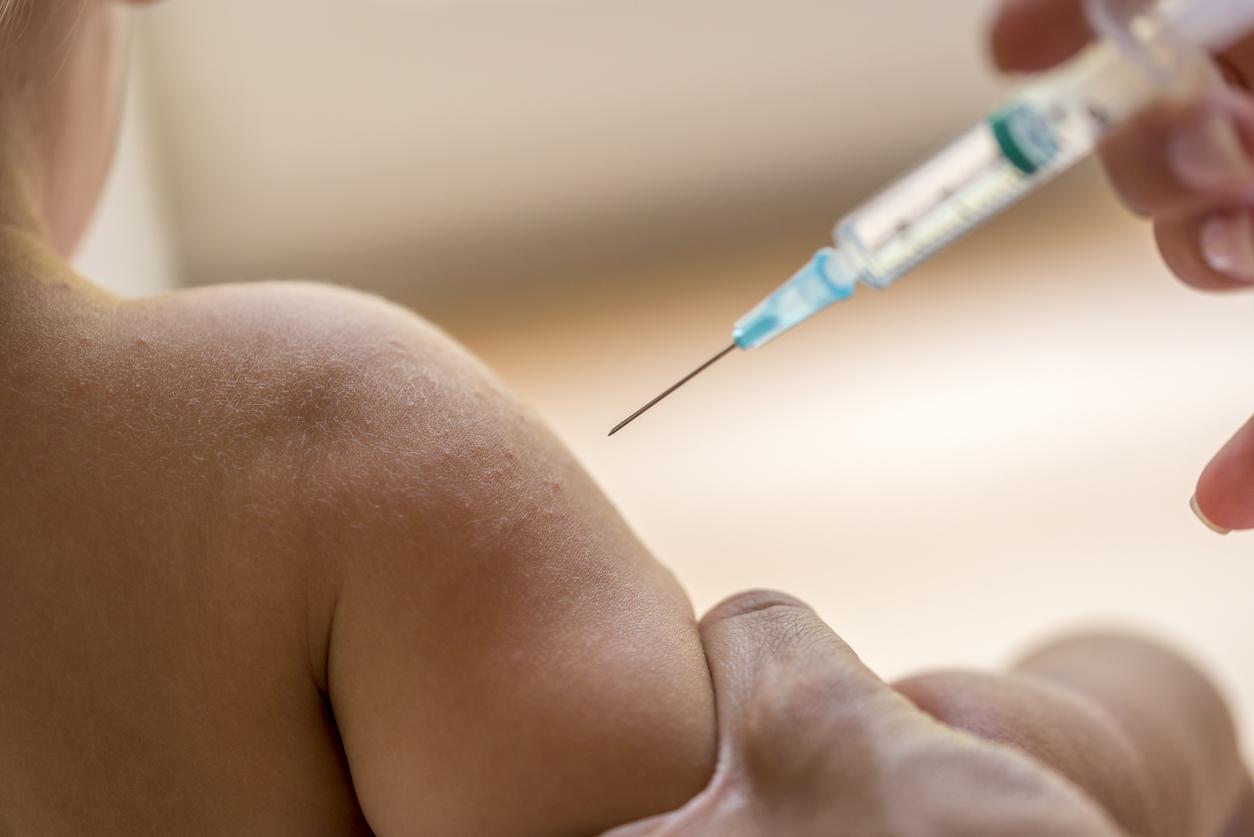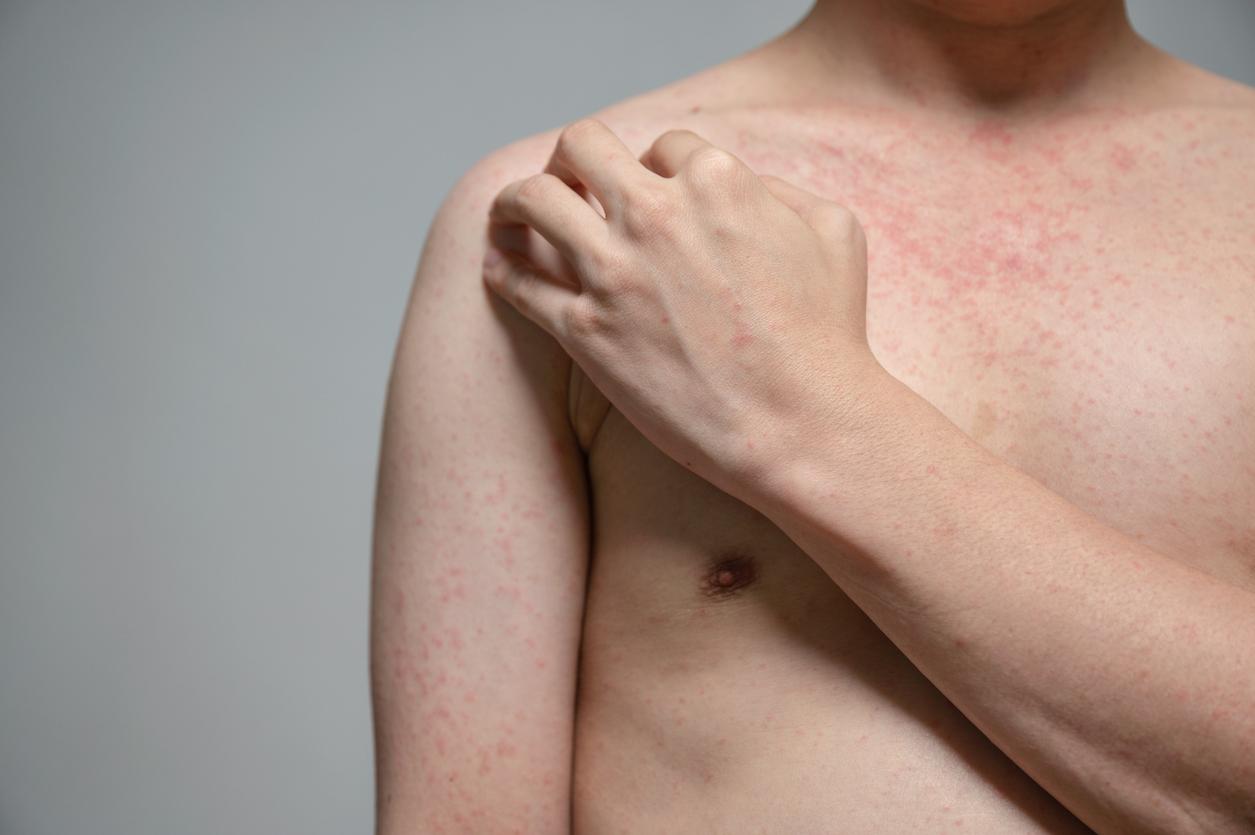In France, is there a decrease in vaccination against measles?
Not at all. The measles vaccination has been increasing for 20 years. Currently nine out of ten children aged 2 years have received a first dose and over 70% the second. But this vaccination rate is not enough to make measles go away completely. This is why we are not immune to epidemics like we had in 2008-2011. Several thousand people who were unvaccinated as children got measles.
Why do some parents not have their children vaccinated?
Some still think that measles is a minor childhood illness. But this is wrong. Before the vaccine existed, there were 500,000 cases of measles per year, several hundred cases of encephalitis, a serious neurological complication and around 30 deaths. Between 2008 and 2011, the measles epidemic led to 5,000 hospitalizations, 28 cases of encephalitis and 10 deaths!
We also regularly talk about whooping cough, is this disease more frequent than before?
Unlike measles, whooping cough cannot be eliminated and is constantly circulating. In addition, every three to five years, epidemics appear. The last one took place in 2012-2013. In these periods, we are witnessing a resurgence of cases, especially in infants under 6 months who are not yet protected by their vaccination. This disease can be fatal in toddlers. It is for this reason that their family circle (young adults, parents), usually the source of the contamination, must be vaccinated, if the last booster is more than ten years old.
What about meningitis?
Some of them like meningitis to Haemophilus have practically disappeared thanks to the vaccination. In contrast, vaccination coverage against meningitis C remains poor. In some countries, such as England, this disease has almost disappeared in a very short time, thanks to good vaccination coverage. With us vaccination is recommended for children from 12 months with a catch up to 24 years. It is important to do this catch-up because we are seeing an increase in cases in infants infected with young adults.
Is the drop in vaccination coverage real in France?
We are not seeing a decrease in immunization coverage for infants. Overall 95% of children are vaccinated. But we are not achieving desirable immunization rates for some diseases. As we have seen for measles or meningitis C. In addition, less than half of adolescents are up to date with their vaccination against hepatitis B. We have also noted a drop in vaccination against influenza since 2009 and of that against the papillomavirus in young girls for 2 years. This disaffection is linked to the controversies over pandemic vaccination which had been decided in 2009 because of fear of a strong epidemic. For the cervical cancer vaccine, the decline comes from the fear of side effects attributed (wrongly) to this vaccine.
With increasing poverty, isn’t tuberculosis likely to come back?
L’incidence of tuberculosis decline in France. The current problem of tuberculosis is, for the most part, linked to immigration. For children born in a country where tuberculosis is rife or those from which one of the parents is born, the BCG vaccine remains strongly recommended. This measurement is well applied in Ile de France, a region where tuberculosis in children under 5 has decreased. But outside Ile-de-France, the vaccination rate of children at risk is only 60%.
Polio is reappearing in some countries, isn’t that a good reason to keep getting vaccinated?
Indeed. We have forgotten these very contagious and very serious diseases like polio or diphtheria. The infectious agents responsible for these diseases continue to circulate in certain corners of the planet. In Eastern Europe, after the collapse of the Soviet health care system, we saw major epidemics of diphtheria. Polio is present in Syria, Pakistan, Afghanistan, Cameroon, Nigeria … and cases of polios have been imported into neighboring countries. The only disease streaked from the face of the globe thanks to vaccination is smallpox.
Which vaccinations are really essential?
Only vaccinations against diphtheria, tetanus and polio remain compulsory for entry into the community. But all vaccinations listed in the vaccination schedule are necessary. If they are in this calendar it is because they are important in terms of public health, that is to say to best protect the entire population. The term recommended vaccines may suggest that they are optional. This is not the case ! As such, I welcome the mission launched by the government on the subject of vaccination. Until recently, ministers have not been very active on the subject. However, vaccination policy is the decision of the ministry and not that of the experts.
Are these vaccinations safe?
Among drugs, vaccines are by far the most controlled. Quite simply because they are administered to healthy people in whom the occurrence of serious side effects is not very acceptable. The vaccines are responsible for side effects: fever, pain, redness or swelling at the injection site. On the other hand, most of the serious side effects attributed to vaccines are wrongly attributed: this is the case of hepatitis B vaccination, accused of causing multiple sclerosis, of the MMR vaccine accused of causing cases of autism, additives such as aluminum accused of toxicity … Numerous scientific studies have shown that there are no links for the majority of the population. Unfortunately, the results of these studies often have less impact than a poignant testimony on TV.
If you want to go deeper into the subject of vaccines, the book written by Brigitte Bègue is for you. What is a vaccine? Should everyone be vaccinated? What diseases do vaccines protect against? Who decides on the vaccination policy? Are children over-vaccinated? … In “Vaccines, true from false”, the journalist specializing in health issues, answers clearly and to all these questions and many others that you ask yourself about vaccination. Publisher Delachaux and Niestlé. 12.90 euros.
Read also :
– The in-utero vaccine may be coming soon
– Shortage of vaccines: should we be worried?
– Vaccination: the French more and more reluctant
– A new vaccination schedule for adults
And you, are you reluctant to have your child vaccinated against measles? talk about it on our forum.
















